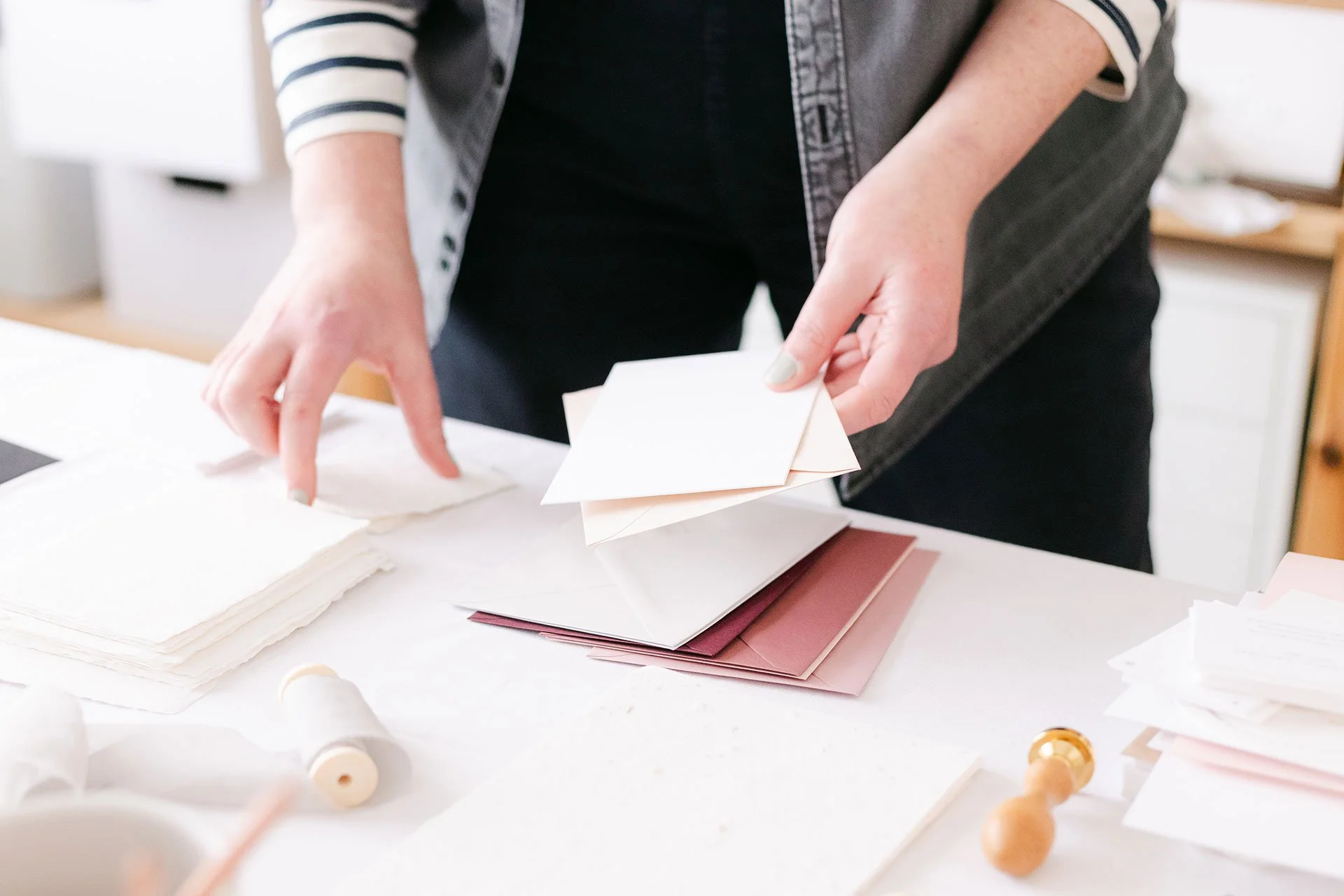It’s normal to think about quitting – and other lessons from 13 years in a creative business
I never actually wanted to be my own boss. Ever. But thirteen years ago, after facing my second redundancy in a decade (and not wanting to risk a third), I decided to launch my own design business. There was no fanfare or grand plan—just a passion for design and a belief that I could probably make it work.
There have been plenty of tough moments, and a global pandemic, but somehow I’m still here. So in this post, I’m sharing the 13 lessons I’ve learned through 13 years in business—some I wish I’d known sooner, and others that have shaped how I work today. These aren’t just tips for surviving, but strategies for thriving in your creative business. Whether you’re just starting out or you’re a few years in, I hope these insights can help guide you on your own journey.
1 You’ll probably think about quitting
If you haven’t already, the chances are that you will. I have. More than once. When sales are slow, when a project feels like a never-ending rollercoaster ride, or when it seems like everyone else is doing so much better—it can feel overwhelming. But remember: bad days don’t equal a bad business. Reflect on why you started, trust your process, and know that you can and will get through it. And remember you’re never alone, which leads perfectly into my next tip…
2 Get to know other creatives
I’m a big believer in community, and I’ve found that the best support often comes from people who, on paper, might be considered your competition. Having creative friends who understand the challenges you face, celebrate the wins, and support you on the tough days can make a huge difference. And working alone can sometimes feel lonely—even for an introvert like me—so it’s worth making time for coffee meet-ups, video calls, or dropping by your local co-working space.
I used to think that after a few years, I’d have everything figured out. Spoiler alert: I don’t. And you know what? That’s a good thing!
3 You’ll never stop learning
I used to think that after a few years, I’d have everything figured out. Spoiler alert: I don’t. And you know what? That’s a good thing! Whether it’s mastering new techniques, finding better ways to manage projects, or making more sustainable choices, staying open to learning and growing keeps things interesting and exciting.
4 Say farewell to the hustle
You are the most important part of your business, especially if you're the only person in your business. So it’s important to prioritise yourself. Set work hours, take breaks, and never feel guilty for stepping away. Schedule in time off, even if it’s an hour with a magazine and a coffee at your favourite cafe. I know I’m not the only one who’s learned the hard way that it’s easier to plan your downtime than to burn out and need forced rest. Rest is not a reward—it’s essential for doing your best work and keeping your business sustainable in the long run.
5 Celebrate every win
It’s easy to get caught up in what’s next and forget to take a moment to appreciate what you’ve already achieved. Whether it’s your first sale, a glowing client review, or hitting a revenue goal—celebrate them all. They might feel small at the time, but looking back, you’ll realise they’re the milestones that show just how far you’ve come.
6 Learn the art of saying ‘no’
This one’s a biggie, but as a recovering people pleaser it doesn’t come easily. Setting boundaries is essential, and saying no isn’t a bad thing. That little word can protect you from unrealistic timelines, projects that don’t align with your values, or clients who aren’t the right fit. It can save your time and your energy, giving you the freedom to do work you love. Always remember, you’re the boss—not your inbox, not your clients, and not every opportunity that comes your way.
7 Create a home for your audience
It’s tempting to rely on social media to connect with your audience, but remember, you don’t own that space. Platforms change, and your reach can quickly disappear. Instead, focus on building your own audience through a website, an email list, or other channels where you can speak directly to your people—without the algorithms getting in the way. For me, my email list is where I enjoy sharing updates, for you it could be a blog or a podcast. Nurture that connection and you’ll have a more sustainable, long-term relationship with your audience.
Want to know if your clients love working with you? Ask them. Testimonials aren’t just confidence boosters—they’re powerful social proof.
8 Don’t be afraid to ask for feedback
Want to know if your clients love working with you? Ask them. Testimonials aren’t just confidence boosters—they’re powerful social proof. Future clients want to hear about real experiences before they commit, so kind words from past clients can make all the difference. I keep it simple: at the end of a project, when I’m thanking a client, I include a short note with a link to a feedback form on my website and my Google Business page. It takes minutes, but those words are gold dust for a growing business.
9 Invest and outsource (where you can)
We all have tasks we dread or try to push down our to-do lists. For me, it’s photographing my work. For you, it might be bookkeeping, copywriting, or something else that makes you want to scream. If a task is draining your energy, see if you can outsource it. Yes, there’s likely to be an investment (unless you can arrange a sweet skills trade), but the time and mental space you get back is often worth far more than the cost.
10 Remember that comparison is the thief of joy
It’s true. And it’s also the worst way to measure your progress. That business with more followers? They might be years ahead of you. That person selling at a lower price? They could be undercharging and barely making a profit. It’s tough, but the best thing you can do is focus on your own goals, set your own pace, and trust that you’re building something that works for you.
11 Know your worth
There will be people who think your work is too expensive—and those people are not your people. Pricing is different for every business, even those in the same industry, so if you’ve done the maths and know your worth, stand by it. There will always be people who see the value in your work and happily pay. Those are your people. Focus on them.
12 Build a financial safety net
If you can, work on building a savings buffer within your business. It doesn’t need to be huge, but having a few months of expenses covered can make all the difference when business slows down. So many creative businesses (mine included) experience seasonal ebbs and flows—and being prepared for them means you’ll have peace of mind when the quieter periods hit.
Your core values are what make your brand recognisable and trusted. A clear brand voice, consistent design, and seamless customer experience are the foundations that great brands are built on.
13 Focus on the foundations
Markets shift. Trends evolve. Life happens. And while your offerings may change over time, it doesn't mean you need to rebrand every few years. Your core values are what make your brand recognisable and trusted. A clear brand voice, consistent design, and seamless customer experience are the foundations that great brands are built on—and ensure that no matter how your business evolves, clients will always know what to expect from you.
Thirteen years in, I’m still figuring things out, still learning, still adapting. But I wouldn’t change anything. If you’re in the thick of it, just know—you’re not alone, and you’re doing great.
I’d love to hear from you! What’s the biggest lesson you’ve learned in your own business journey? Drop a comment below, or if you'd rather chat one-on-one, send me a message!






